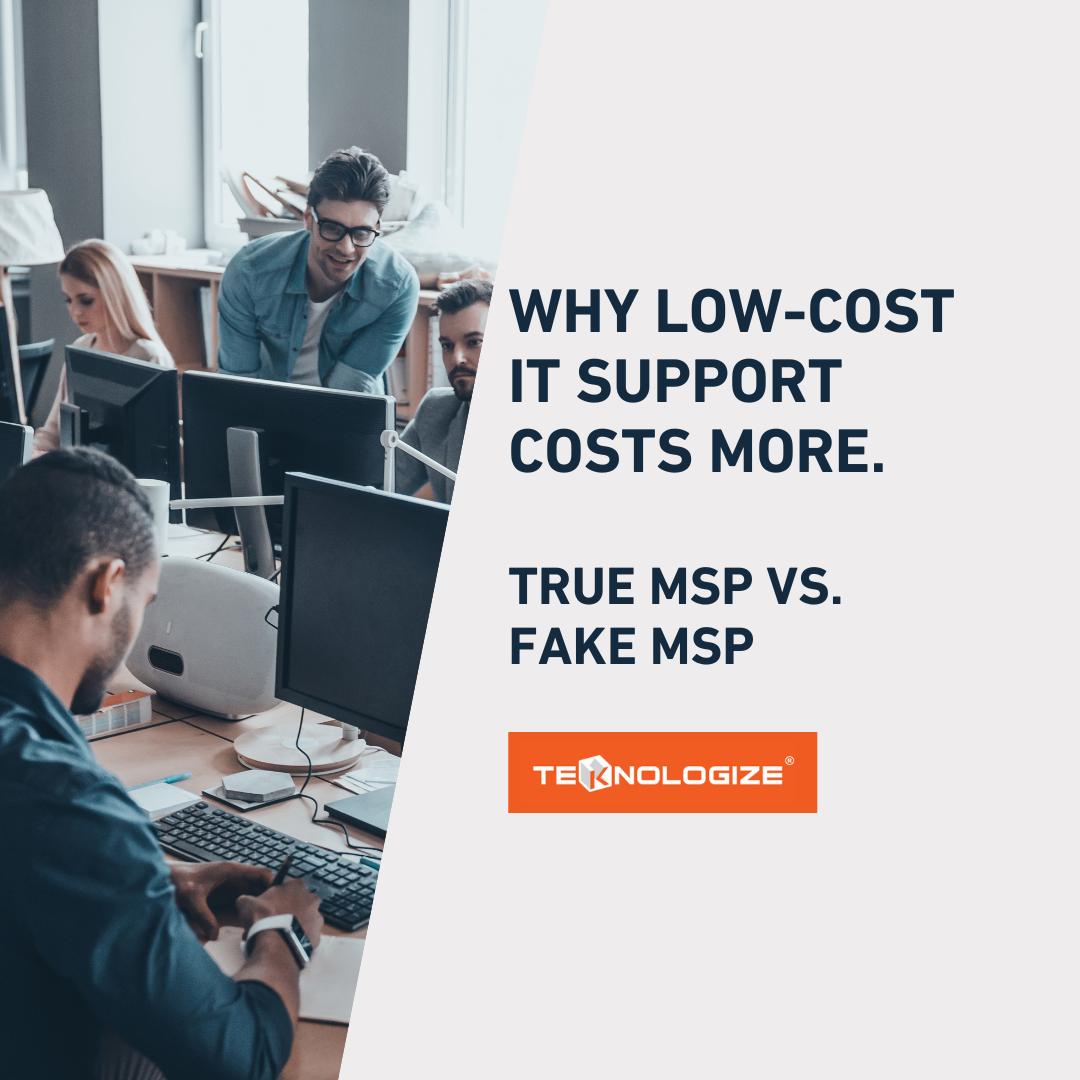Endpoint Detection and Response (EDR): Enabling Secure Growth for Small Businesses
Cybercriminals don’t go after businesses because they’re big.They go after businesses because they’re accessible. According to the IBM Cost of a...
4 min read
 Byron Martin
:
Mar 25, 2025
Byron Martin
:
Mar 25, 2025

Yes.
As a CPA, you manage sensitive client data every day, including personal financial details, social security numbers, tax information, and more. Protecting this information isn't just good business sense; it's a legal and regulatory requirement.
The Federal Trade Commission (FTC) requires every tax professional to implement and maintain a Written Information Security Plan (WISP). Not only does this safeguard your clients’ valuable data, but it also protects your firm from costly breaches, fines, and reputational damage.
In addition, tax pros now need to report a security event affecting 500 or more people to the Federal Trade Commission (FTC) as soon as possible, but no later than 30 days from the date of discovery. This is in addition to reporting the incident to an IRS Stakeholder Liaison and state tax authorities.
For tax professionals, when renewing your PTIN (Preparer Tax Identification Number) on IRS form W-12, Question 11 requires you to confirm that you have a WISP in place.
In a world of increasing cyber threats, identity thieves and hackers target CPA firms because of the treasure trove of valuable data they handle.
According to Kimberly Rogers, director of the IRS Return Preparer Office and co-chair of the Summit's Tax Pro Working Group:
“It’s more important than ever for tax pros to protect their data, passwords, and other information. The updated Written Information Security Plan is a result of months of work by tax professionals across the country. The Security Summit members worked together on this plan to make it easier for all tax professionals to develop a plan and an approach that is right for them.”
The Written Information Security Plan (WISP) infographic flyer guides tax professionals through creating a security plan, highlighting key compliance requirements and professional obligations. It serves as a starting point rather than a comprehensive solution, intended to help professionals understand and begin drafting an effective security plan tailored to their business.
The security plan should reflect the specific size, scope of activities, complexity, and sensitivity of the data the firm manages. There is no universal WISP suitable for every organization.
Furthermore, the IRS emphasizes that a WISP is only one component of a broader strategy necessary to protect both clients and the firm. Given the constantly changing nature of cyber threats, the IRS and the Security Summit strongly recommend consulting cybersecurity experts for additional guidance and assistance in securing sensitive information and safeguarding firm systems.
A good WISP should identify the risks of data loss for the types of information handled by a company and focus on three areas:
1. Employee Management and Training
Your employees are the front line of defense against data breaches. A well-structured WISP should detail regular cybersecurity training, policies for securely handling sensitive information, and clearly defined responsibilities for every employee.
Your WISP should clearly outline the safeguards implemented within your firm's IT systems, including encryption, multi-factor authentication, secure data backups, and restricted system access.
3. Detecting and Managing System Failures
Even the best security systems can fail. Your WISP must include a clear incident response plan, detailing how your firm identifies, manages, and mitigates the impact of cybersecurity incidents.
To remain compliant, your firm must fulfill these FTC-required steps within your WISP:
Regular maintenance is required for your Written Information Security Plan (WISP) to remain effective and compliant. Here are some tips:
Accessibility: Keep your completed WISP in an easy-to-read format, such as PDF or Word, and make it readily available to your employees for training and reference purposes.
Regular Updates: Remember that your WISP should be a living document. Periodically review and update it to reflect changes in your firm’s size, complexity, and scope of operations, as well as evolving security threats.
Incident Response: The IRS recommends integrating a detailed data theft response plan into your WISP. This plan should include immediate steps, such as reporting the incident to your IRS Stakeholder Liaison, and complying with FTC data breach response guidelines.
Creating and maintaining a robust WISP brings significant advantages, including:
Cybersecurity is an essential part of responsible client management for all Accounting Firms. Ensure your firm is protected, compliant, and ready to respond effectively to threats.
![]() Teknologize is a SOC 2 Type II accredited Managed IT and Cybersecurity provider serving small to mid-sized businesses across Washington and Oregon. We deliver full-service Managed IT Support, Co-Managed IT Support, advanced Cybersecurity Solutions, and IT Compliance Services for regulated industries, including Healthcare, Financial Institutions, the Utilities Sector, Manufacturing, and Professional Services.
Teknologize is a SOC 2 Type II accredited Managed IT and Cybersecurity provider serving small to mid-sized businesses across Washington and Oregon. We deliver full-service Managed IT Support, Co-Managed IT Support, advanced Cybersecurity Solutions, and IT Compliance Services for regulated industries, including Healthcare, Financial Institutions, the Utilities Sector, Manufacturing, and Professional Services.
👉 Book a Discovery Call to see how Teknologize can support your business.
Our Offices
Tri-Cities, Washington – 509.396.6640 | Yakima, Washington – 509.396.6640
Bend, Oregon – 541.848.6072 | Seattle, Washington – 206.743.0981
Questions about your IT or Cybersecurity? Give us a call today!
%20Enabling%20Secure%20Growth%20for%20Small%20Businesses.png)
Cybercriminals don’t go after businesses because they’re big.They go after businesses because they’re accessible. According to the IBM Cost of a...

IT Support Companies Can All Sound the Same, Until You Know What to Look For Business owners all want the same thing from their IT: reliability,...

Many SMBs don’t actually have an IT budget; they have a list of last year’s expenses. Everything goes into one bucket, and next year’s “budget” is...